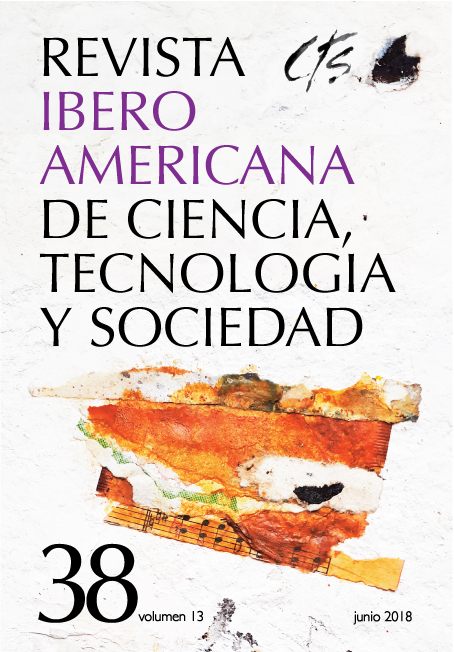Educação, comunicação e apropriação da ciência a partir de uma perspectiva pluralista: experiências na construção do diálogo para a apropriação social dos conhecimentos
Palavras-chave:
apropriação social do conhecimento, cultura científica e tecnológica, diálogo de saberes, conhecimentos locais e tradicionais, redes sociais de inovaçãoResumo
A cultura científica e a apropriação social do conhecimento são consideradas condições fundamentais para enfrentar alguns dos desafios da sociedade do conhecimento. Por isso, frequentemente é apontada a necessidade de promover ações para a formação de cidadãos capazes de participar das diversas fases dos processos relacionados à ciência e à tecnologia. No entanto, muitas destas propostas não levam em consideração a diversidade cultural, o reconhecimento dos conhecimentos tradicionais, a necessidade do diálogo de conhecimentos ou a participação de diferentes atores nos processos de tomada de decisões. As abordagens pluralistas de León Olivé construíram, na última época de sua filosofia, um quadro de conceitos que assume esta necessidade do diálogo de saberes e a construção de sociedades de conhecimentos, tendo em vista a diversidade cultural. Esses conceitos, ainda, são projetados para modelos de apropriação social do conhecimento nos quais a chave é a adaptação do conhecimento ao contexto natural e cultural das diversas comunidades. Neste artigo são apresentadas diversas experiências práticas de apropriação social do conhecimento, cada uma das quais está diretamente associada aos meios propostos por Olivé para conseguir a apropriação social forte do conhecimento científico e tecnológico, isto é: a educação científica, a comunicação da ciência e a participação ativa nas redes sociais de inovação.Downloads
Referências
ARGUETA, A, GÓMEZ-SALAZAR, M. y NAVIA, J. (2012): Conocimiento tradicional, innovación y reapropiación social, UNAM-Siglo XXI Editores.
BONFIL, G. (1991): “La teoría del control cultural en el estudio de procesos étnicos”, Estudios sobre las Culturas Contemporáneas, vol. 4, n° 12, pp. 165-204. Disponible en: http://www.redalyc.org/pdf/316/31641209.pdf
HARDING, S. (1991): “Gender, Development and Post-enlightment Philosophies of Science”, U. Narayan y S. Harding (eds): Descentering the Center. Philosophy for a Multicultural, Postcolonial and Feminist World, Indiana University.
OLIVÉ, L. (1999): Multiculturalismo y Pluralismo, México DF, Paidós.
OLIVÉ, L. (2000): El bien, el mal y la razón. Facetas de la ciencia y la tecnología, México DF, Paidós.
OLIVÉ, L. (2008): Los desafíos de la sociedad del conocimiento: exclusión, diversidad cultural y justicia social, México DF, Fondo de Cultura Económica.
OLIVÉ, L. (2009): “Por una auténtica interculturalidad basada en el reconocimiento de la pluralidad epistemológica” en L. Tapia Mealla (coord.): Pluralismo Epistemológico, La Paz, CLACSO, CIDES-Universidad Mayor de San Andrés.
POLINO, C. (2015): “Las encuestas de percepción pública de la ciencia en América Latina: estructura, evolución y comparabilidad”, en L. Massarani (ed.): Red Pop: 25 años de popularización de la ciencia en América Latina, Río de Janeiro, RedPop-Unesco-Museo da Vida.
RAMÍREZ CASTAÑEDA, E. (2006): La Educación Indígena en México, UNAM.
SANTOS, B. de S. (2009): Una epistemología del sur: la reinvención del conocimiento y la emancipación social.
VELASCO, A. (2011): “Equidad epistémica, racionalidad y diversidad cultural”, en C. López y A. Velasco (coords.): Aproximaciones a la filosofía política de la ciencia, México DF, UNAM.
VILLORO, L. (1998): Estado plural, pluralidad de las culturas, Editorial Paidós.
VILLORO, L. (1982): Creer, saber, conocer, Siglo XXI Editores.
Downloads
Publicado
Como Citar
Edição
Seção
Licença
Todas os números de CTS e seus artigos individuais estão sob uma licença CC-BY.
Desde 2007, a CTS proporciona acesso livre, aberto e gratuito a todos seus conteúdos, incluídos o arquivo completo da edição quadrimestral e os diversos produtos apresentados na plataforma eletrônica. Esta decisão é baseada no entendimento de que fornecer acesso livre aos materiais publicados ajuda a ter uma maior e melhor troca de conhecimentos.
Por sua vez, em se tratando da edição quadrimestral, a revista permite aos repositórios institucionais e temáticos, bem como aos sites pessoais, o autoarquivo dos artigos na versão post-print ou versão editorial, logo após da publicação da versão definitiva de cada número e sob a condição de incorporar ao autoarquivo um link direcionado à fonte original.











